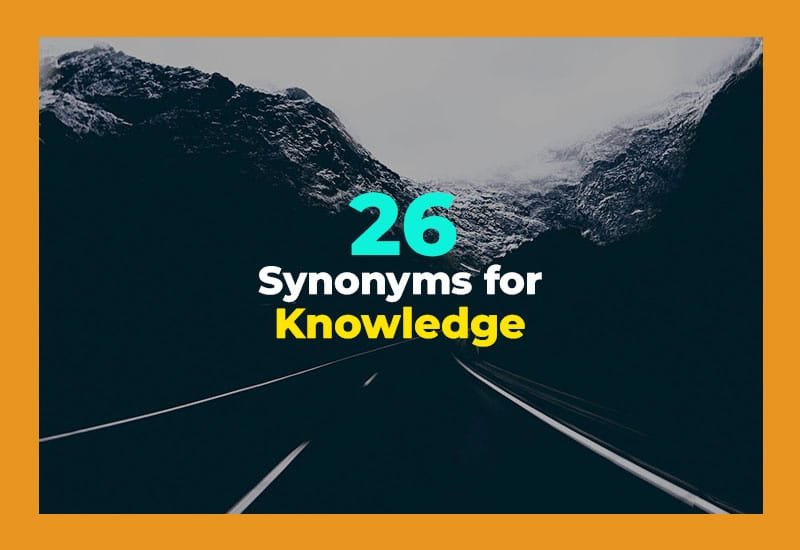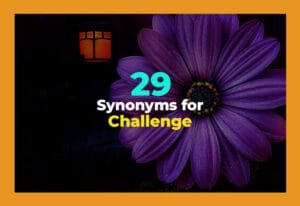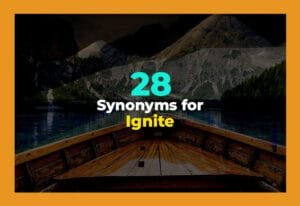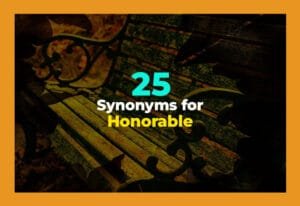Have you ever felt like using the word knowledge too often and want to sound more interesting? In this article, we'll explore 26 amazing synonyms for knowledge such as understanding, wisdom, and insight. Each one has its own special use and meaning, with clear examples to help you use them confidently in daily life.
Understanding
"Understanding" is a great synonym for knowledge when you want to express that someone not only knows something but also gets it deeply. It's about seeing the full picture and connecting ideas together. You can use it when talking about people who truly grasp a topic, not just remember facts. Students, teachers, and anyone in communication often use this word to show empathy or mental clarity.
- She has a strong understanding of human behavior.
- His understanding of history helps him see patterns in the present.
- Good understanding builds strong relationships.
Awareness
"Awareness" means being conscious or informed about something. It's not just about having data in your mind but recognizing what's happening around you. You can use this word when talking about social issues, health, or self-improvement. Many leaders and activists use it to show that they know and care about a cause.
- Public awareness about climate change is growing.
- Self-awareness helps you improve your habits.
- He showed great awareness of his surroundings.
Comprehension
"Comprehension" shows the ability to fully grasp ideas, stories, or information. It's often used in schools or workplaces where people need to prove they truly get the meaning. This synonym fits well in formal or learning situations. Teachers, writers, and professionals use it when talking about understanding something deeply and accurately.
- Her reading comprehension is excellent.
- Good comprehension helps you learn faster.
- The test measures students' comprehension of the text.
Insight
"Insight" means seeing beyond the surface and understanding the deeper truth. It's like having a light bulb moment where everything suddenly makes sense. Use this word when talking about smart observations or wisdom that helps make good decisions. Business leaders, psychologists, and coaches often use it.
- His insight into human nature is impressive.
- She offered valuable insight during the meeting.
- Meditation gave her deep insight into herself.
Wisdom
"Wisdom" is more than knowledge—it's knowing how to use it well. It's gained through experience, reflection, and good judgment. People often use this word for elders, mentors, or anyone who gives thoughtful advice. It's perfect when you want to highlight life lessons and emotional intelligence.
- Her wisdom guided me through hard times.
- Wisdom grows with experience.
- The book is full of timeless wisdom.
Intelligence
"Intelligence" shows mental sharpness and the ability to think, reason, and learn. It's not just book smarts but also creativity and emotional skill. This word fits when describing someone who learns quickly or solves problems easily. Students, scientists, and leaders often use it to show mental ability.
- His intelligence impressed everyone at the interview.
- Emotional intelligence is key in relationships.
- The company values creative intelligence.
Learning
"Learning" means gaining new knowledge or skills through study or experience. It's a word that shows growth and curiosity. Teachers, students, and lifelong learners use it to describe the process of improving themselves. You can use it to show progress, effort, and discovery.
- Learning never stops.
- She enjoys learning new languages.
- Mistakes are part of learning.
Education
"Education" refers to formal or informal teaching and the knowledge gained through it. It's about developing the mind and preparing for life. Parents, educators, and students use this word often when talking about schools or personal growth. It's a foundation for success in many areas.
- Education opens doors to opportunity.
- He values education above all else.
- The country invests heavily in education.
Erudition
"Erudition" means deep, extensive knowledge gained through reading and study. It's a formal word that describes someone highly educated or scholarly. Use it when you want to sound intellectual or praise someone's learning. Professors, historians, and writers often use it.
- His erudition impressed his peers.
- The library reflects her erudition.
- Erudition takes years of dedication.
Expertise
"Expertise" means special skill or deep knowledge in a specific area. It's about being an expert who others trust for advice. Professionals, technicians, and consultants often use it when describing their qualifications. Use this word when you want to show mastery in a subject.
- Her expertise in marketing is unmatched.
- We need his technical expertise for the project.
- He shared his expertise with the team.
Familiarity
"Familiarity" means being well-acquainted or comfortable with something. It's not just knowing facts but being used to them through experience. Use this when you want to describe something or someone you know well. Travelers, employees, and learners often use this word.
- Her familiarity with the software saved time.
- He spoke with familiarity about the town.
- Familiarity brings confidence.
Information
"Information" means data or facts that give knowledge. It's one of the most common ways we gain understanding in modern life. Journalists, researchers, and students use it every day. It fits well in both formal and casual contexts when talking about shared knowledge.
- The website provides useful information.
- Too much information can be confusing.
- Information is power.
Acumen
"Acumen" means sharpness in understanding and making quick, smart decisions. It's about practical intelligence and good judgment. Businesspeople, leaders, and investors use it often. Use this word when you want to describe someone who sees opportunities and acts wisely.
- Her business acumen led to success.
- He showed great acumen in solving the problem.
- Financial acumen is valuable in management.
Perception
"Perception" means how you interpret and understand the world. It's not just knowledge but the way you see things. Artists, psychologists, and thinkers use it to talk about awareness and insight. You can use it when discussing opinions or viewpoints.
- Her perception of beauty is unique.
- He has sharp perception of people's emotions.
- Perception shapes our reality.
Cognition
"Cognition" means the process of thinking, understanding, and remembering. It's often used in psychology and education to describe mental ability. You can use this word in discussions about learning or mental performance. Researchers and teachers use it most often.
- The study focused on child cognition.
- Good sleep improves cognition.
- Aging can affect cognition.
Sagacity
"Sagacity" means having wise judgment and keen understanding. It's like wisdom but with a sharper focus on making smart decisions. Leaders, judges, and thinkers often show sagacity in their choices. Use this when you want to express deep wisdom.
- His sagacity earned him great respect.
- She handled the situation with sagacity.
- Sagacity helps avoid mistakes.
Discernment
"Discernment" is the ability to see things clearly and make the right choice. It's about being wise and thoughtful. Use it when talking about people who judge well or understand complex matters. Counselors, mentors, and leaders use this word often.
- Her discernment is always spot-on.
- Discernment comes with experience.
- He showed great discernment in his decision.
Proficiency
"Proficiency" means high skill or ability in something. It's not just knowing but doing it well. Students, professionals, and artists often use it to show they have mastered a skill. Use this word when you want to show competence.
- She has proficiency in English and Spanish.
- His proficiency with tools is impressive.
- Practice builds proficiency.
Skill
"Skill" means the ability to do something well. It's often practical knowledge gained from practice. Everyone uses this word—students, workers, and hobbyists. Use it when talking about talents or abilities that can be improved over time.
- Cooking is a useful skill.
- His writing skill is amazing.
- Skill grows with practice.
Enlightenment
"Enlightenment" means deep understanding and awareness, often spiritual or emotional. It's used when someone gains new wisdom about life or self. Philosophers, thinkers, and seekers use it to express growth and awareness.
- Meditation brought him enlightenment.
- The talk gave me new enlightenment.
- Enlightenment leads to peace.
Know-how
"Know-how" means practical knowledge or the ability to do something effectively. It's very common in work and everyday life. Use it when describing experience-based understanding. Professionals, engineers, and workers often use it.
- She has the know-how to fix it.
- We need his know-how for the project.
- Know-how makes work easier.
Scholarship
"Scholarship" means deep academic knowledge or study. It's often used for research and education. Professors, writers, and students use this word when talking about learning or expertise. Use it when referring to scholarly understanding.
- His scholarship on history is well-known.
- The paper shows great scholarship.
- Scholarship requires dedication.
Awakening
"Awakening" means sudden understanding or realization. It's often emotional or spiritual. People use it to describe a moment of awareness or truth. It's common in personal growth or reflection.
- She had an awakening about her purpose.
- The journey led to his spiritual awakening.
- Awakening brings change.
Intellect
"Intellect" means the power of the mind to think and reason. It's about mental strength and intelligence. Scholars, scientists, and deep thinkers use this word often. Use it when talking about someone's mental abilities.
- His intellect is truly remarkable.
- Great leaders use both heart and intellect.
- She admired his sharp intellect.
Mastery
"Mastery" means complete control or understanding of something. It's about being the best at what you do. Artists, athletes, and professionals use this word to show excellence. Use it when describing full command of a skill.
- She achieved mastery in piano.
- Mastery takes time and practice.
- His mastery of the subject is clear.
| Synonym | Meaning | Example |
|---|---|---|
| Understanding | Deep grasp of something | She has a good understanding of science. |
| Awareness | Knowing about something | Awareness of safety rules is important. |
| Comprehension | Full understanding | His comprehension of the book was excellent. |
| Insight | Deep observation | Her insight helped solve the issue. |
| Wisdom | Smart use of knowledge | Wisdom comes with experience. |
| Intelligence | Ability to think and learn | His intelligence shines in class. |
| Learning | Gaining new knowledge | Learning is a lifelong journey. |
| Education | Process of being taught | Education builds the future. |
| Erudition | Deep scholarly knowledge | His erudition amazed everyone. |
| Expertise | Advanced skill in a field | She shared her expertise in finance. |
| Familiarity | Being used to something | His familiarity with the tool saved time. |
| Information | Facts or data | Information helps us make choices. |
| Acumen | Sharpness in judgment | Her acumen led to smart decisions. |
| Perception | Way of seeing things | His perception of art is unique. |
| Cognition | Thinking and understanding process | Cognition improves with learning. |
| Sagacity | Wise and sound judgment | His sagacity earned trust. |
| Discernment | Ability to judge well | Her discernment is remarkable. |
| Proficiency | High level of skill | Proficiency in coding is valuable. |
| Skill | Ability to do something well | Writing is a useful skill. |
| Enlightenment | Deep understanding or awareness | Meditation brought him enlightenment. |
| Know-how | Practical knowledge | She has the know-how to fix it. |
| Scholarship | Deep academic study | His scholarship on history is impressive. |
| Awakening | Sudden realization | The book led to her awakening. |
| Intellect | Power of the mind | His intellect is outstanding. |
| Mastery | Complete control or expertise | He achieved mastery in guitar. |

Final Thoughts
Knowledge has many forms, from simple understanding to deep wisdom and expertise. Each synonym helps express a unique shade of meaning. Using these words not only enriches your vocabulary but also helps you speak and write with more precision and style in any situation.









